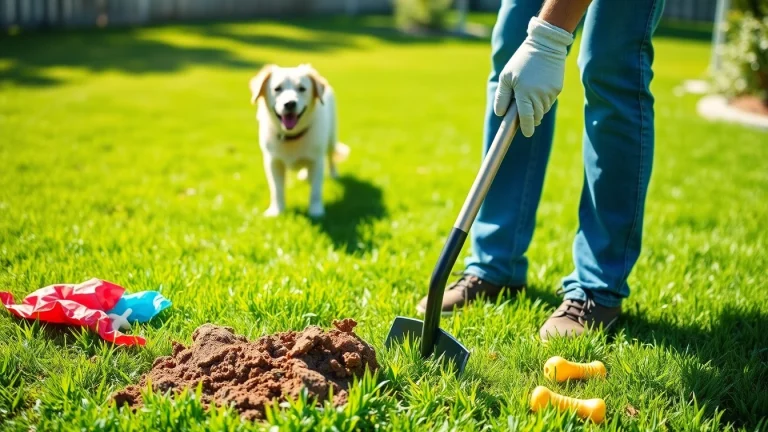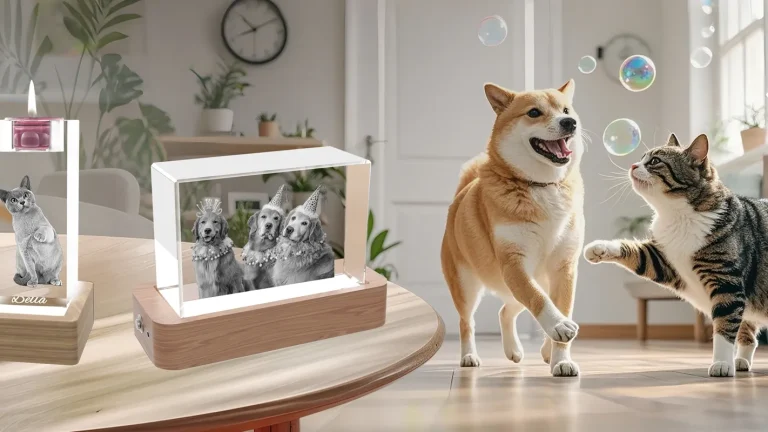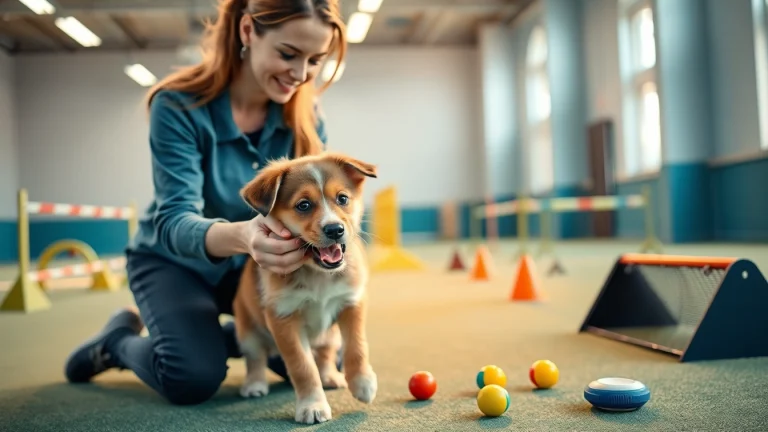
Effective Strategies to Clean Up Dog Poop: Tips for Pet Owners
Understanding the Importance of Cleaning Up Dog Poop
As a dog owner, cleaning up after your furry friend is a responsibility that extends beyond maintaining a clean yard. Proper disposal of dog waste is essential for safeguarding both public health and the environment. Many pet owners might underestimate the repercussions of neglecting this responsibility. However, it is crucial to clean up dog poop consistently and efficiently. In this section, we will delve into the health risks, environmental implications, and legal responsibilities tied to dog waste management.
Health Risks Associated with Dog Waste
Dog poop is not only an unpleasant sight; it can also pose serious health risks. According to the Centers for Disease Control and Prevention (CDC), dog feces can harbor various pathogens and parasites that can affect pets and humans alike. Common health risks associated with dog waste include:
- Parasites: Toxocara canis, which can cause visceral larva migrans in humans, is a prime example. Ingesting contaminated soil or feces can lead to severe health issues.
- Giardia: This protozoan parasite can lead to gastrointestinal illnesses in both humans and dogs. It spreads easily in areas contaminated with fecal matter.
- Salmonella: Dogs can carry salmonella bacteria from their feces, leading to harmful infections if transferred to humans.
If dog waste is not cleaned up promptly, these pathogens can seep into the soil and water supply, creating further complications for community health.
The Environmental Impact of Dog Poop
Beyond health concerns, the environmental consequences of failing to remove dog waste are significant. Dog poop contains nutrients like nitrogen and phosphorus. While plants need these nutrients, when pet waste accumulates, they can lead to:
- Water Pollution: When it rains, dog poop can wash directly into storm drains, which lead to rivers, lakes, and oceans. This can result in algal blooms that diminish water quality and harm aquatic life.
- Soil Contamination: Excessive accumulation of dog waste can alter soil pH levels and harm local flora. This, in turn, can affect the whole ecosystem, including insects, birds, and other animals.
Legal Responsibilities of Dog Owners
Many municipalities have laws in place that require dog owners to clean up after their pets in public areas. Failing to comply can result in fines or citations. Furthermore, cleaning up after your dog is part of responsible pet ownership. It helps maintain community standards and fosters a safer, healthier environment for all residents. Understanding local regulations related to pet waste is paramount for every responsible dog owner.
Best Tools for Cleaning Up Dog Poop
To effectively clean up after your dog, having the right tools can make the process quicker, cleaner, and more enjoyable. Below are various tools and supplies that can assist in efficient dog waste removal.
Types of Pooper Scoopers
Pooper scoopers come in several styles and functionalities. Here’s a breakdown of the most effective ones:
- Traditional Scooper: A handheld scoop, often made of plastic or metal. They are great for quick pickups and are generally affordable.
- Long-handled Scoopers: These help you avoid bending over, making them an ergonomic choice. Many feature a closed bin to contain the waste for hygienic disposal.
- Rake and Bin Models: These are excellent for larger yards, allowing you to rake the waste into a bin for easy transport to the trash.
Each option has its advantages, and the best choice depends on your yard’s size, your physical capabilities, and personal preference.
Biodegradable Bags vs. Disposable Bags
When it comes to dog waste bags, you have two primary options: biodegradable and regular disposable bags. Choosing the right one can significantly impact the environment.
- Biodegradable Bags: Made from materials designed to break down over time, these bags are a more eco-friendly option. They reduce the amount of plastic waste found in landfills.
- Disposable Bags: Typically made of plastic, these bags are durable and effective for waste collection. However, they linger in the environment for years. They should be used with consideration of proper disposal methods.
Ultimately, opting for biodegradable bags aligns more closely with sustainable practices.
Additional Cleaning Tools and Supplies
In addition to poop scoops and bags, consider these supplemental tools for enhanced cleaning:
- Disinfectant: Especially if your dog has illness; using products that kill bacteria can help maintain a clean environment.
- Gloves: Protect against harmful pathogens when cleaning up waste.
- Enzyme Cleaners: Good for dealing with stains or odors left behind on grass or floors.
Step-by-Step Guide to Clean Up Dog Poop Effectively
Cleansing your space after your dog isn’t a chore; it can be a straightforward and efficient process. Here’s a structured guide to effectively tackle dog waste cleanup.
Preparing Your Cleaning Supplies
Start by gathering all necessary supplies into one easily accessible place. Your arsenal should include:
- Pooper scooper or bag
- Disinfectant spray
- Gloves
- Waste container for disposal
Having these tools within reach will streamline the process, making it efficient.
Techniques for Yard Cleanup
When you’re ready to clean up in your yard, consider the following techniques:
- Survey the Area: Before beginning, visually inspect your yard. Identify spots that need attention.
- Use Your Tools: If using a scooper, position it low to capture waste efficiently. For bags, gently scoop the waste without crushing it.
- Dispose Properly: Place waste in a designated trash bag, ideally a compostable one if suitable. Seal the bag tightly to prevent odors.
Indoor Cleanup Tips and Tricks
If your pet has had an indoor accident, follow these steps for indoor cleanup:
- Act Quickly: The sooner you can address the mess, the easier it will be.
- Wear Gloves: Safety first! Protect yourself from germs.
- Remove Solid Waste: Use a paper towel or scooper to pick up the larger pieces.
- Clean the Area: Use an enzyme cleaner to break down any remaining residue and odors.
Eco-Friendly Solutions for Dog Waste Disposal
While cleaning up waste is important, how you dispose of it can have lasting effects on the environment. Here are some eco-friendly disposal options.
Composting Dog Poop
Composting dog waste can be a sustainable solution, provided you follow some guidelines:
- Designate a Compost Bin: Use a separate compost bin just for dog waste. Avoid mixing it with kitchen scraps.
- Monitor Temperature: Ensure the compost reaches a temperature sufficient to kill pathogens.
- Use Caution: Once decomposed, use the compost on non-edible plants, as it may still contain some harmful bacteria.
Using Waste Digesters
For those looking for an easy-to-manage option, a waste digester is a great investment. Similar to a septic tank, it allows for safe and sanitary disposal:
- Buy a Waste Digester: Available at pet stores, these units break down waste efficiently, turning it into inert soil.
- Follow Instructions: Each unit has specific installation and usage guidelines. Adhering to these ensures optimal performance.
Flushable Options for Pet Waste
If appropriate for your local sewer system, flushing dog waste is another environmentally friendly alternative:
- Use Flushable Bags: These can be flushed down the toilet, reducing landfill contributions.
- Consult Local Regulations: Confirm that your sewage system can handle dog waste if utilizing this method.
Maintaining a Clean Environment for Your Pets
A clean environment not only benefits your family and neighborhood but also contributes to the health and happiness of your pets. Here’s how to maintain cleanliness consistently.
Regular Cleaning Routines
Establish a routine for cleaning up after your dog:
- Daily Checks: If your dog is outside regularly, dedicate time each day to inspect and clean the yard.
- Scheduled Cleanups: Plan weekly or bi-weekly deep cleaning sessions to ensure no waste is left behind.
Training Your Dog for Outdoor Potty Habits
Proper training can help minimize indoor accidents:
- Routine Walks: Establish a consistent walking schedule that encourages outdoor bathroom habits.
- Positive Reinforcement: Reward your dog for doing their business outside to encourage the right behavior.
Community Guidelines on Dog Waste Management
Engage with your community to foster responsible pet ownership. This can include:
- Community Cleanups: Organize or participate in local events that focus on cleaning up shared spaces to promote a cleaner environment.
- Education Initiatives: Share information about the importance of cleaning up after pets with neighbors and fellow pet owners.
In conclusion, cleaning up dog poop may seem like a mundane task, but its significance cannot be overstated. Understanding this responsibility and adopting best practices can contribute greatly to public health, environmental sustainability, and community harmony. By following the outlined approaches in this article, you can ensure a cleaner space for everyone.


